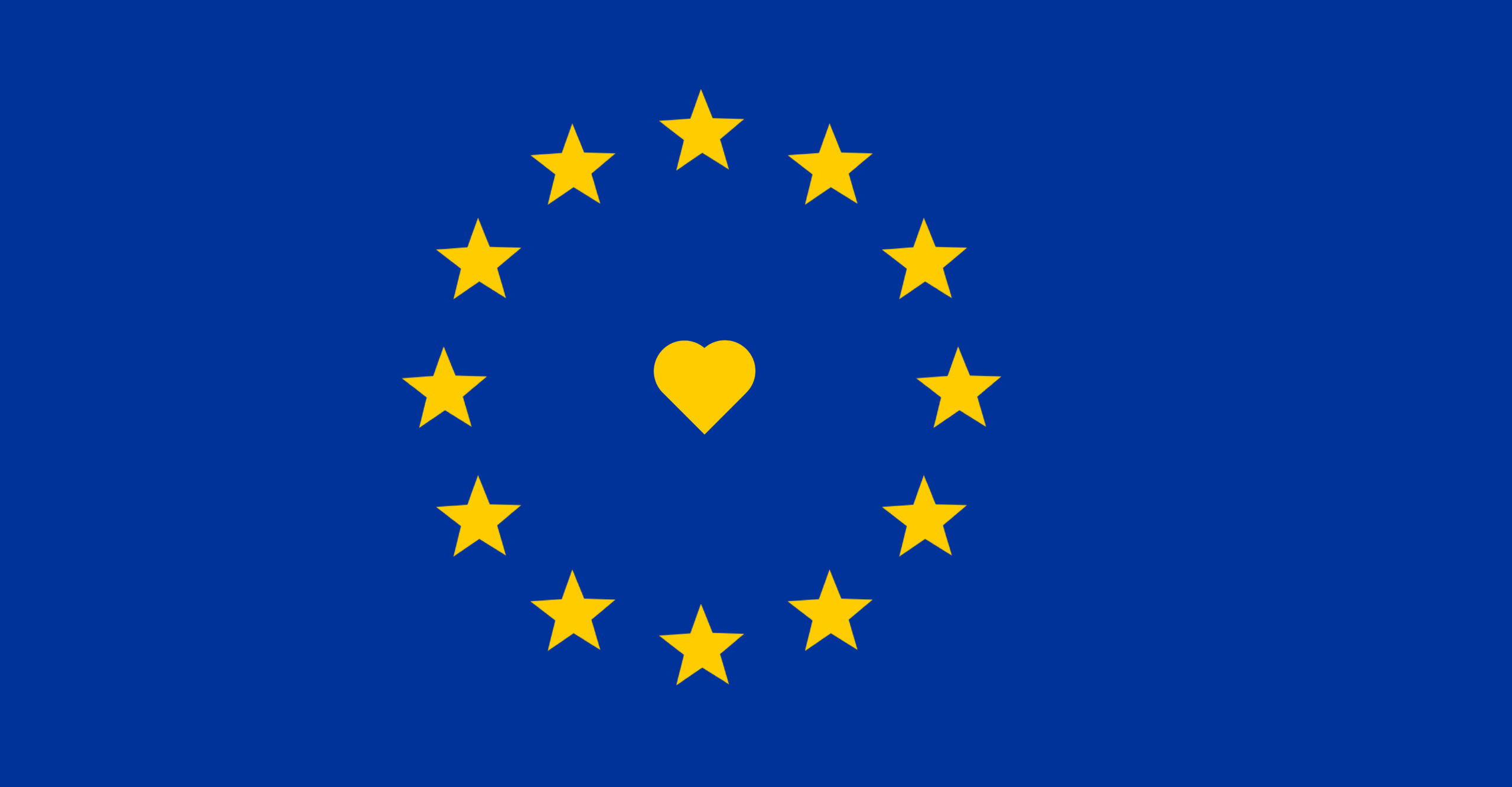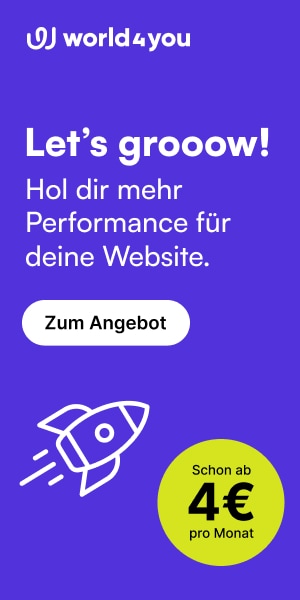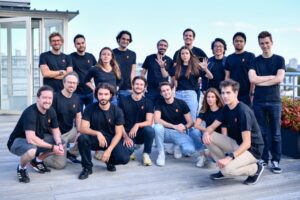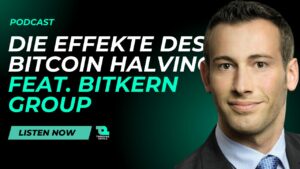Here’s What Future MEPs Think. We Asked Candidates About Innovation, Technologies and Startups

We have the right and chance to vote for members of the European Parliament this Sunday. Yet, it’s a challenge to navigate through the platforms (where existing) of the parties registered for participation. So together with The Bulgarian Startup Association (BESCO), we went to explore who has an opinion on the topics that concern the development of innovative ecosystems across Europe, and in Bulgaria as well.
For BESCO this was a chance to put the ecosystem topics on the politicians’ agenda. For us, it’s an opportunity to observe to what extent the candidates for members of the European Parliament are aware of the problems and concerns within the European innovative ecosystem. BESCO tried to organize meetings with most of the parties, and we prepared questions that we sent to each party. The only answers that arrived in our mailbox are from “Pat na Mladite”, from Commissioner for Digital Economy and Society Maria Gabriel (GERB), and from the assistant of Eva Maydell from GERB (not direct answers to the asked questions). The other statements below were made during face-to-face meetings with BESCO. Note that answers are not always straightforward, so we picked the most relevant statements from both written and verbal interviews.
Hopefully, this summary will help you make your decision on May 26th.
Democratic Bulgaria
Democratic Bulgaria, a coalition of Da, Bulgaria! (Yes, Bulgaria), Demokrati za Silna Bulgaria (Democrats for a Strong Bulgaria) and the Bulgarian Green Party, aims to position itself as the party of the tech sector. Indeed, during a public meeting we had the chance to meet some of the candidates (not the spitzenkandidat Radan Kanev) who seem to be well prepared when it comes to digitalization, startups, patent law, financial instruments. Even though not in the list, the coalition has experts in the tech field and also startup founders. We met Stefan Tafrov, Emil Georgiev and Alina Dobreva. The candidates for MEPs said they support the Juncker plan, but think it’s hard to be implemented in Bulgaria. In general, they support the mobilization of private and public capital for the support of innovative businesses. Yet, they see it as a priority to avoid tax harmonization, which in their opinion will be a disadvantage for the Bulgarian economy. The development of the Digital Single Market is an important topic for the candidates. One of the topics that popped out in the conversations was an implementation of the Single European Patent. They also expressed willingness to work for the unification of rules at crowdfunding across Europe. According to Tafrov, there’s also too much bureaucracy in the EU, which is a burden for the European innovative business.
The lack of rule of law is also a topic for the coalition and they see E-Justice and a System for monitoring of political practices as a solution.
Pat na mladite
Pat na Mladite was the first party BESCO met and the first to submit official statements. Our partners met Rumen Cholakov, Nikola Apostolov, Tsvetelina Panchalieva and Kristina Velkova. Rumen Cholakov is a lawyer, Kristina Velkova is a co-founder of a startup, Nikola Apostolov is a consultant in digital transformation, and they seem to understand the problems of innovative ecosystems. Apostolov supports the idea of the Junker plan because and in contrast to subsides, it is focused on more efficient instruments such as venture capital and debt, and this incentivize SMEs to take more risk, develop new innovative business models and technologies and disrupt existing markets.
Apostolov thinks that if Europe wants to compete with the US and China in terms of innovation, there should be a unification of the innovative ecosystems and also the establishment of the digital single markets. “That is why we need a coordinated European policy in order to ensure Europe has the ingredients necessary to produce the next tech champions: funding, research, talent, an integrated market and a good administrative environment,” he writes.
We also asked about 5G. Apostolov sees the reason for Europe to lag behind in this area in the fragmentation of the market. According to him the fifth-generation network has a great potential for European innovation. He also thinks the EU should adjust its competition policy in the industry in order to allow more takeovers if necessary. Yet, he expresses concerns regarding the largest equipment provider – the Chinese Huawei, and the security of European Networks.
GERB
The spitzenkandidat here is the Commissioner for Digital Economy and Society Maria Gabriel, who sent us long and detailed answers on Friday evening. Part of the list is also MEP Eva Maydell, who has established herself as an advocate for entrepreneurship and digitalization. Both have supported the Allied for Startups initiative EUROPE <3 STARTUPS!
They’ve expressed willingness to establish a working group that would represent startup founders in conversations with different directorates of the European Commission.
Gabriel and Maydell see startups as a key factor in the development of digitization in Europe and are aware of the need to create an environment that helps every startup in Europe to be able to act globally and have a better potential to become a “unicorn”. Maydell is also one of the initiators of the European Startup Manifesto and the European Scale up Manifesto.
Gabriel says she supports the Juncker plan which has already delivered great results and thinks the two major factors for the further development of the European startup ecosystem are funding and interconnection. Innovation should be financially boosted through diverse funding vehicles, but also financial instruments that mobilize private capital, and the building of a well-connected network of Digital Innovation Hubs across Europe. Regarding education and closing the digital skills gap, the Commissioner thinks that member states should first work on a national level, but coordination in EU is also needed.
Asked about the potentials and threats of 5G, Gabriel underlines the role of the network for the further development of the digital economy in Europe. Furthermore, she sees Europe as a global leader in 5G. Gabriel highlights that EU companies are leading worldwide in terms of combined revenue from 5G equipment sales. Chinese company Huawei is not mentioned, and she doesn’t express any security concerns. To Gabriel, it’s also important that the Member States finalize the necessary spectrum assignments in time, in order to enable the launch of 5G services throughout the EU by end of 2020. (
VMRO
BESCO met also Angel Dzhambazki, the spitzenkandidat of nationalist party VMRO, and another candidate for MEP Carlos Contrera and transcribed their answers. From what we read, we’d say that the party uses a well-known superficial rhetoric regarding innovation topics. Dzhambazki and Contrera have said they support the Juncker plan but are skeptical about its implementation. They agree innovative businesses should rather be supported through equity investments and financial instruments, instead of grants. Education is also a topic for VMRO and the candidates think funding for education should be based on performance and quality, not on the quantity of the students. In the same time, the party is rather interested in educating the least educated groups. Generally, the candidates have expressed the opinion that in order to flourish innovation economy needs to cut off administrative burdens and few regulations. “On European level, the regulatory framework needs to be changed. It is full of regulations that are unnecessary,” Dzhambazki stated without giving more insights.
One interesting and specific for this party statement is related to military investments. According to the spitzenkandidat, Bulgaria needs to invest money in military technology through start-up companies and create new jobs. Like in Israel, the Ministry of Defense should work with the start-ups. In addition, European countries should intensify trade with military technology within the EU.
Volt
Volt is a pan-European party that is running for the European Elections simultaneously in several countries and Bulgaria is one of them. BESCO met candidate Zlatimira Tsolova.
Volt promises to work to ensure that public institutions in the EU Member States are reformed and use the latest technologies and increase the range of services of “Points of single contact” through digital platforms. Here are several other points we selected from the four pages long essay that followed the conversation. The party wants to:
-Prioritize developing the digital single market, enabling businesses and start-ups to make use of the 500 million consumers and the economies. There must be accommodation for emerging online forms of organizations, as well as the potential of alternative business models such as cooperatives and mutuals.
– Create a truly efficient European Open Data Platform. Improve the usability of the data available on the EU Open Data Portal, concerning areas such as mobility, smart cities, production, and tourism to encourage data-driven business. And also develop a European “AI-on-demand platform”. AI development will require major investments to boost EU’s technological and industrial capacity, from both the private and public sectors.
– In addition, Volt sees stimulation of VC, angel investments and SMEs investments in innovation in tax incentive mechanisms.
– Regarding education Volt advocated for digital, but also soft skills education starting from the kindergarten.
Bulgarian Socialist Party (BSP)
The person who responded by the BSP is Georgi Pirinski, who is a current member of the European Parliament and has also joined the initiative EUROPE <3 STARTUPS. He told BESCO he supports the same legislative reform initiatives as they do. However, no further communication followed – neither with our partners, not with us, despite several reminders from us.
Dvizhenie za prava i svobodi (DPS)
We all looked for them, but never received any response.
Volya
Despite being pretty proactive and expressing willingness to participate in this material by submitting answers, the party of the low-budget gasoline and medicines entrepreneur Veselin Mareshki, pretended they haven’t received any questions. We sent them the questions twice.




























